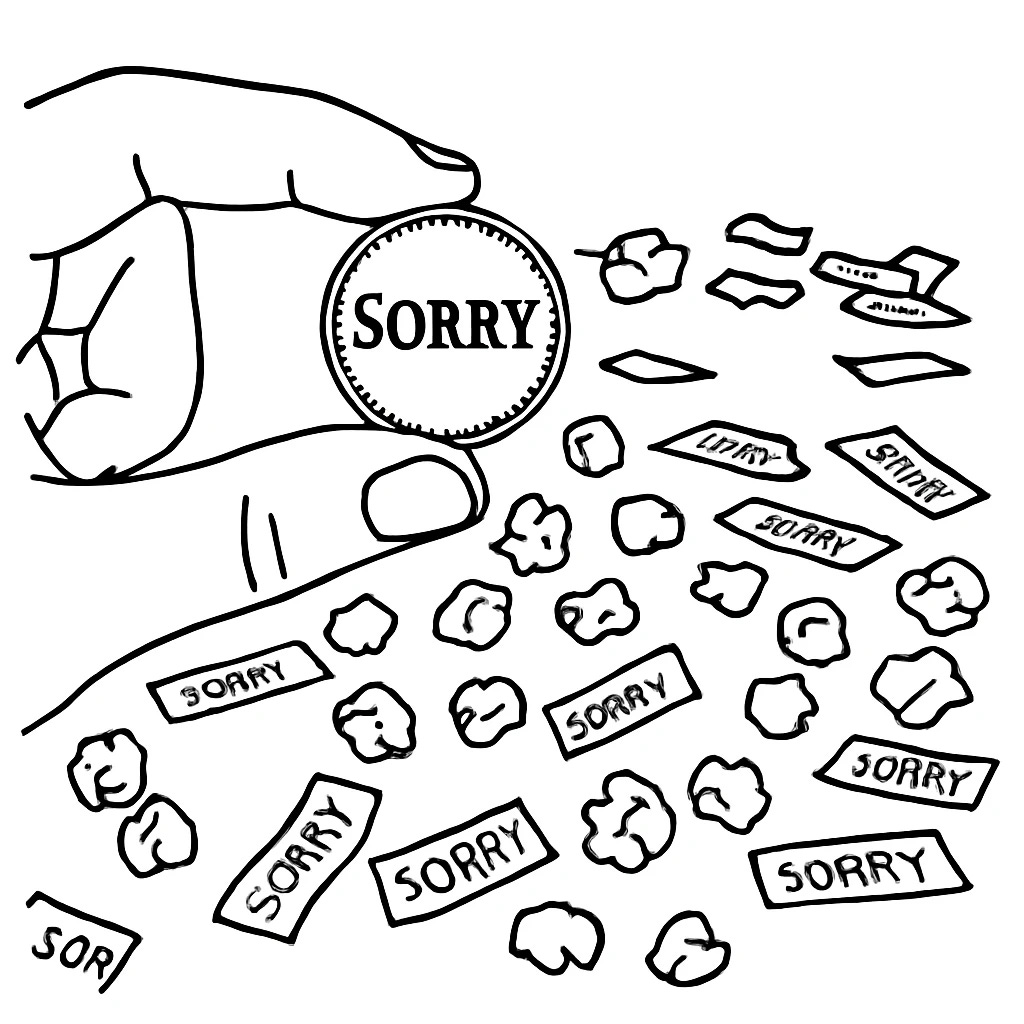2-20: The "S" Word
Saving Sorry for When It Counts
We all know someone who says "sorry" so often that it would be hard to take them seriously when they are truly sorry for something. It is spoken after bumping into someone, when squeezing past a person in a crowded aisle, when texting a friend back a few minutes late, or when holding up a line at the coffee shop. Used in these ways, the word stops carrying meaning. It becomes nothing more than a sound to smooth over awkward air.
I never thought much about that habit until it landed on me. One day, someone who apologized constantly finally said sorry for something that truly mattered, and I did not know how to take it. Their words fell flat because I had heard them say the "S" word too many times before for things that did not matter. I honestly could not tell if this apology was genuine or just another reflex. This marked a turning point in how I viewed apologies and saying "sorry." I finally understood that the more you apologize for trivial things, the less seriously people take your genuine apologies.
From then on, I told myself I would reserve the word "sorry" for when I was truly sorry for my words or actions. Not out of arrogance, but out of respect for the times I would truly need the word. I began to notice how often people use “sorry” as a conversational filler, a social lubricant, a pre-emptive shield against imagined judgment. We say it out of habit rather than humility. We mistake noise for kindness.
I’m not advocating for rudeness. I’m advocating for acting intentionally and thinking before you speak. If I’m late because traffic was heavy, I can simply say, “Traffic was heavy.” If I forget your birthday, I can say, “I forgot, and that’s on me.” Those statements own the moment without diluting the word I might need later if I actually regret something. When I do inevitably regret an action or inaction, I want the apology to come across as genuinely as I would want to hear one. I want it to buy back at least a small amount of the trust that I may have lost.
There’s confidence in not apologizing for every little thing. I’ve started to notice the difference between “I’m sorry for the delay” and “Thanks for your patience.” One assumes guilt and the other assumes grace. Both acknowledge the same fact, but only one leaves the other person feeling like they’ve done me a favor by waiting. It turns out that some of the time we say sorry, we could just as well say thank you.
None of this is to say that a real apology is easy. A real apology is takes time and reflection. It requires you to look at the damage you caused and sit in the discomfort of having caused it. A real apology does not end with the word sorry, but rather ends with changed behavior. It ends with you having learned to become the person who wouldn’t make the same mistake twice.
I still bump into things and I definitely still miss texts, but now I save the S word for times when I'm truly sorry. I save it for when I can look someone in the eye and mean every letter. When those moments come, the word appropriately sounds like it came from the heart and was well-intentioned.


